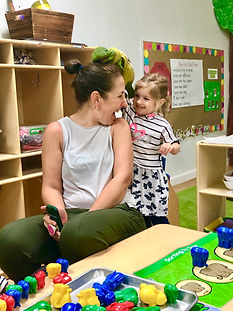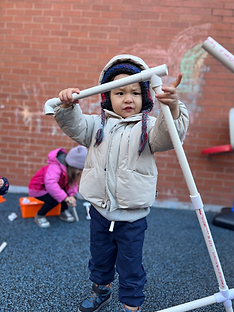Nurturing The Whole Child
Small Brave Steps helps bridge the gap between school and home through family coaching, parenting workshops, and educator workshops. Our work centers on nurturing the whole child by helping families and teachers understand development, strengthen connection, and build the confidence and well-being every child needs to thrive.
Our approach nurtures the whole child by focusing on readiness for learning, emotional well-being, and physical confidence—helping each child grow with balance and joy.
School Readiness and Cognitive Development
We go beyond ABC's and 123s, helping children build focus, curiosity, and confidence so they feel ready to learn and grow
Social-Emotional Support
We guide children in understanding their feelings, practicing empathy, and building strong social connections that help them thrive with others.
Physical Development
From fine motor skills to body awareness, we strengthen foundations that support independence, coordination, and readiness for everyday tasks.
Our Why and How
Parents often equate school readiness with academic skills like counting and reading. Educators, however, see readiness as the skills necessary to manage the whole school experience - how children handle frustration, take turns, steady their bodies and stay curious even when things are hard - the very skills children need to navigate the day and learn effectively at home and in the classroom. According to the National Association for the Education of Young Children, true readiness "doesn’t mean just knowing the academic basics. It means a child has a willing attitude and confidence in the process of learning: a healthy state of mind."
School Readiness Fallacy

School Readiness Reality
.png)
Small Brave Steps bridges the school readiness gap:
Through coaching and workshops, we support children in growing the skills—physical, cognitive, and social-emotional—that foster regulation, build resilience, and inspire curiosity. We empower caregivers to confidently support their growth in ways that feel simple, clear, and manageable.
Because when a child is regulated, resilient, and ready, their learning isn’t just possible. Their learning flourishes.





